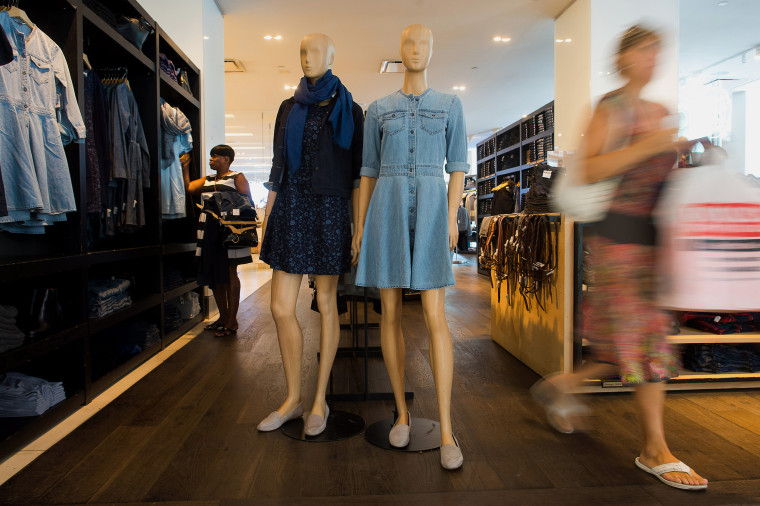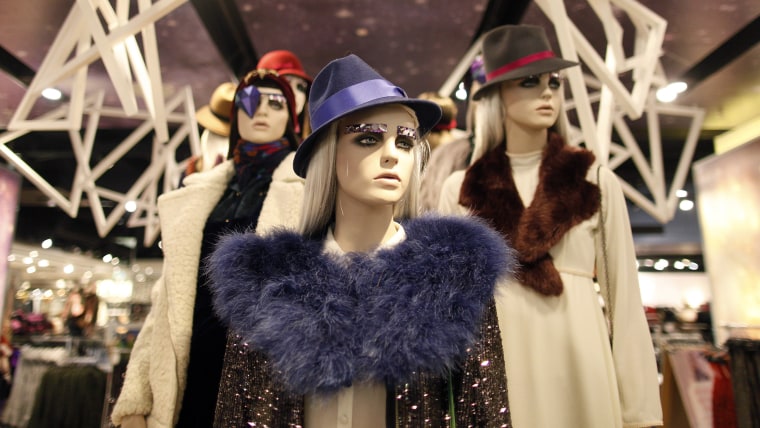If you think mannequins in clothing stores look a little unrealistic — and not just because they're plastic — you're not alone.
New research proves just how thin those mannequins are. In a study, researchers found that 100 percent of the female mannequins they looked at represented an underweight body size. In other words, if those mannequins were humans, they'd be "medically unhealthy," according to the study authors.
The research, published in the Journal of Eating Disorders, was conducted in England, but it's not only a problem across the pond. Many U.S.-based stores have been criticized for featuring extremely thin mannequins in recent years, including Gap and Topshop.

Rachel Rodgers, a body image expert and psychology professor at Northeastern University, told TODAY she wasn't surprised by the study's results — her own research has produced similar findings.
"It's another aspect of the way our fashion industry goes toward a very thin aesthetic," Rodgers said.
And it can be dangerous.
"We know that exposure to images of people who are very thin encourages people to try and pursue that type of body shape and size," Rodgers said. "Because for most people it is unattainable by healthy measures, that can mean people will engage in risky behavior."
That can even lead to eating disorders, she added.

"It has been found that one of the driving pieces of an eating disorder has been the idea that one's appearance is a central part of one's identity," Rodgers said. "And images of very thin people and models reinforce this idea that this is something that is very important, and that there really is only one ideal appearance."
The study found that only 8 percent of male mannequins represented an underweight body size. But the fashion industry may discriminate against men in other ways, it pointed out. While researchers didn't formally assess how muscular the mannequins were, it noted that many of them appeared "unrealistically muscular."
"This may affect men in similar ways," Rodgers said. "They're being told there is this very unrealistic ideal."
Of course, outrageous mannequins are nothing new. Topshop has been a main offender. The company was criticized in 2015 and again this year for featuring extremely thin mannequins in its store displays. The problem extends to magazine and online advertisements as well, where models' bodies can be digitally altered to appear thinner. (Who can forget Target's epic Photoshop fail?)
And yet there's also been a recent push from retailers to promote more realistic body shapes, on the runway, in advertising and, yes, with mannequins, too. As body positivity becomes a household term, more women — and men! — are encouraged to love their bodies, just the way they are.
Now that's something we can get behind!
RELATED: